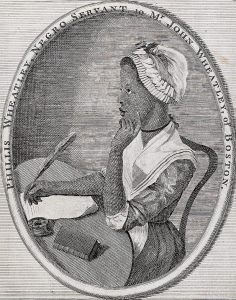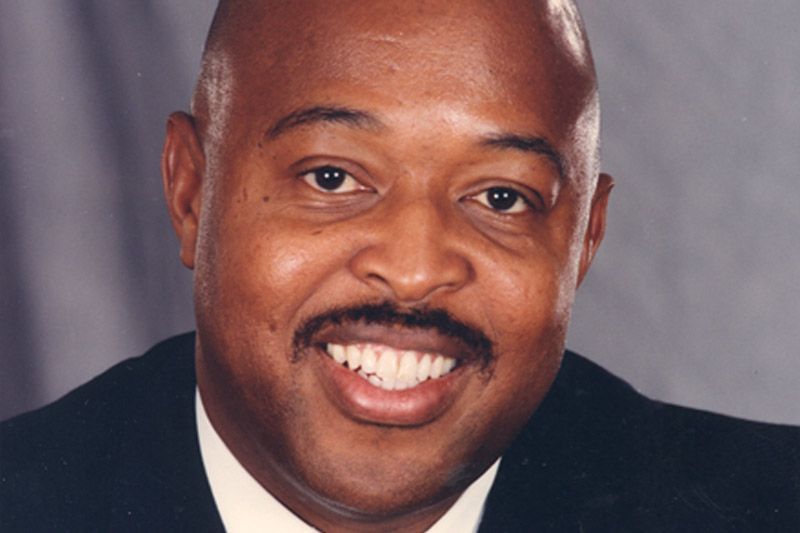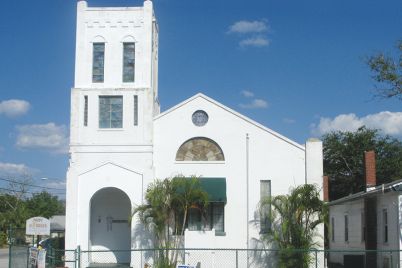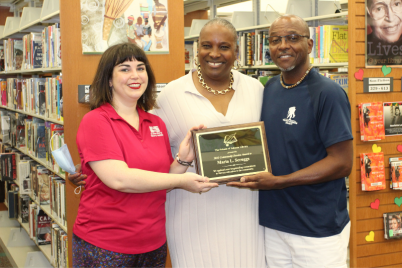The Phillis Wheatley Rise to Read Campaign is a deliberate, coordinated community initiative designed to bring a strategic laser community focus to the issue of African American literacy, said Dr. Goliath Davis.
GOLIATH J. DAVIS, III, PH.D., Contributor
ST. PETERSBURG — During the swirling controversy surrounding what I called “The Miracle at Lakewood Elementary,” I have been asked numerous times: Who is Phyllis Wheatley, and what is the Phyllis Wheatley Rise to Read Campaign? In no small way, the question is an indictment of the Pinellas School district’s failure to provide an adequate inclusive education for its scholars.
Phyllis Wheatley was a prominent Black poet, brought to American colonies at age 6-7 from the Senegal/Gambia region of West Africa and sold to the John Wheatley family in Boston. Within 16 months of her arrival, she could read the bible and the Greek and Latin classics. She was the best-known poet of the 19th century and the first published Black female in America.

Phillis Wheatley was the first Black author of a published book of poetry in the American Colonies.
The Phyllis Wheatley Rise to Read Campaign is an initiative named in honor of the distinguished scholar in recognition of her laudable accomplishments as a student and poet. A slave at age 6-7 from the African Continent reading Greek and Latin classics is not just inspirational but a testament to what is possible if the will, determination, commitment and focus are present.
The Rise to Read Campaign is not a new reading method or technique. Instead, it is a deliberate, coordinated community initiative designed to bring a strategic laser community focus to the issue of African American literacy. It is a response to the negotiated Bridging the Gap plan developed by the Pinellas School District in concert with the Bradley and Crowley defense teams.
It is rooted in the African proverb “It takes a village” and the movie “Akeelah and the Bee,” starring St. Pete’s own Angela Bassett.
During Maria Scruggs’ tenure as president of the St. Petersburg Branch of the NAACP, a comprehensive assessment of the Pinellas District FSA literacy scores was made and revealed only 25 percent of our more than 10,000 scholars were reading on grade level. Based upon this finding and the 50 plus years of district failure, the question was asked: What can the African-American community do to improve the performance of Black scholars?
The answer was, develop a literacy campaign utilizing a collective impact strategy to coordinate community resources and programs to focus on improving the literacy of African-American scholars specifically and community literacy in general.
The approach was modeled in Akeelah and the Bee when the student preparing for the spelling bee lost her coach and teacher, and her mother (Angela Bassett) encouraged her, noting she had an entire community’s support. Consequently, everyone from business persons to the man on the street answered the call and assisted with her training.
The Phyllis Wheatley Rise to Read Campaign epitomizes “it takes a village.” Utilizing the collective impact strategy, it provides the total community with a deliberate, effective approach to supplement district efforts and does not require anyone to abandon existing programs. Rather, the objective is to partner with established literacy initiatives to heighten the awareness of the importance of literacy to achievement and prosperity.
It is a comprehensive, collaborative campaign that identifies any and all existing programs, provides opportunities to network and observe best practices, modify and improve practices based upon collaborative observations and discussions, and infuses literacy throughout the community — sports programs, cheerleader camps, barbershops, and beauty parlors, etc.
The Phyllis Wheatley Campaign is not designed to compete with any existing approach. Its focus is to amplify literacy and all who are committed to improving it for the ultimate benefit of black and brown scholars. It is a facilitative initiative for the explicit purpose of ensuring our African-American scholars can do what Phyllis Wheatley did — master literacy and read and comprehend the Latin and Greek classics.
Goliath Davis is a former chief of police and deputy mayor for the City of St. Petersburg who actively advocates for education in Pinellas County.








